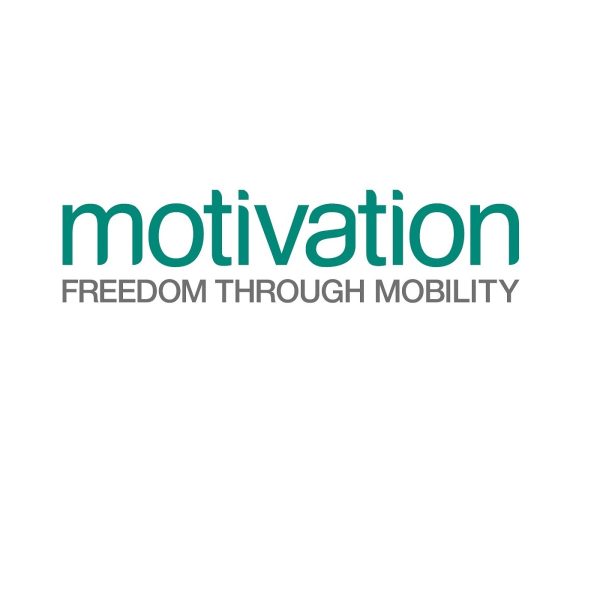
Partnership impact 2023-25:
The need is critical. In Kenya, there is a huge gap in services and support for an estimated 100,000 people living with the impact of spinal cord injury, cerebral palsy, childhood polio and other mobility disabilities. Without appropriate volunteers, care and services, wheelchair users are marginalised, and many live with painful and potentially fatal pressure injuries and contractures.
The project focused on training volunteers, raising care standards through improved technical and clinical infrastructure, procurement of products, service provision and linkages for community referral through peer support. Wheelchair users also received training and follow-up support and be linked to other services and support.
We are delighted to share the impact this partnership has had on so many lives:
Curriculum Integration
An important milestone was successfully integrating wheelchair service training into physiotherapy and occupational therapy courses at Jomo Kenyatta University of Agriculture and Technology (JKUAT). This positioned JKUAT as a leader in embedding the World Health Organisation’s (WHO) wheelchair training package into academic programs. To date, 134 new students have enrolled in the new course, and 96 fourth-year students gained hands-on experience with wheelchair services.
Incorporating wheelchair services training into the curriculum has a significant lasting impact and is a change that will continue beyond this project. A deeper understanding of the importance of disability inclusion will come about with each new cohort of students graduating with these essential skills. Each student who continues to work in this field can assess, prescribe, fit and train hundreds of wheelchair users each year.
“Since the inception of the wheelchair training programme, I’ve gained tremendous experience in wheelchair prescription and service delivery” — Francis, BSc Physiotherapy student
Improved Independence and Social Participation
Participants across project areas, reported significant autonomy and community involvement improvements. Access to appropriate wheelchairs and support services enabled users to enjoy rightful independence in their daily lives.
Strengthened Peer Mentorship and Referral Systems
Trained peer mentors played a pivotal role in ensuring sustainable user support. Their lived experience fostered trust, empowerment, and deeper engagement with wheelchair services.
Building Local Repair and Maintenance Capacity
The project also trained 12 community-based artisans to provide timely wheelchair repairs, addressing service gaps and supporting sustainability. However, given the vastness of the coverage areas, further investment is needed to scale up a skilled workforce in assistive technology repair and maintenance.
Key achievements and project impact:
- Service Provision Expansion: Wheelchair services were formally established at JKUAT following an infrastructure upgrade, with a service-learning centre commissioned by the University Vice Chancellor and Ministry of Health Head of Rehabilitation Services.
- Assistive Technology Distribution: 311 assistive technology products were delivered and stored, with an additional 368 contributed by project partners.
- Training and Workforce Development: 134 new students in physiotherapy and occupational therapy enrolled in the wheelchair training course at JKUAT, and 96 fourth-year students gained hands-on training at the wheelchair service centre.
- Community-Based Services: Through JKUAT service-learning and outreach activities, 162 wheelchair users were reached and supported. In June, in collaboration with Bethany Kids and JKUAT students, 72 wheelchairs were provided.
- Peer Mentoring: Over 500 wheelchair users benefited from Motivation Peer Trainer (MPT) follow-ups, which ensured continued support through both remote and physical follow-ups.
- Stakeholder Engagement: 33 leaders in Nairobi and 78 stakeholders across multiple counties were sensitised on WHO wheelchair service provision, strengthening community-based referral systems.
- National Recognition: Motivation showcased its work at the Africa Assistive Technology Expo, further cementing its role in skilled workforce development and wheelchair service provision.
Partnership Update, Phase 2 2025-28:
The CareTech Foundation is proud to announce the renewal of its strategic partnership with Motivation.
At least 90,000 people in Kenya currently lack access to a wheelchair or related services. This is a critical barrier to independence, health, education, work and participation in community life. Addressing this urgent need requires more than just equipment; it calls for a system of support, training, and inclusion.
This project begins at the community level, training health champions to identify and support people who would benefit from a wheelchair. At the same time, students in fields such as medicine, public health, physiotherapy and social work are being trained in disability rights, assistive technologies and high-quality service provision. A model Wheelchair Service Centre provides hands-on learning, while experienced Peer Mentors guide new wheelchair users and families in building independence and confidence.
The new phase will ensure that at least 700 more people receive individually fitted wheelchairs, training and ongoing support. It will also develop sustainable repair and maintenance services through young people and community artisans.
This project reflects a shared commitment to person-centred care and to enabling people with disabilities to live full, independent lives. In turn, we hope to set an example for policymakers to embed lasting, inclusive change.
Specific project outcomes:
- At least 700 people with mobility disabilities report improved quality of life and capacity to make informed choices about the products and services they want.
- Training on wheelchair service provision is embedded in the curriculum for medical, rehabilitation and related undergraduate courses.
- At least 400 professionals have acquired knowledge and skills that lead to improved service standards and support in service centres and the community.
- Wheelchair users have ongoing and appropriate support in their communities from their families and caregivers, repair and maintenance artisans, disability officers, and peer mentors.
- Evidence of impact documented and learning shared.
Outputs:
- 20 university lecturers trained in wheelchair service provision, teaching:
- 100 Medicine, Pharmacy, Public Health, Nursing and Biomedical Science students
- 300 rehabilitation physiotherapists, occupational therapists and medical social worker students, including outreach experience
- 18 Vocational Centre instructors trained on wheelchair maintenance and repair, teaching:
- 250 young people/community artisans
- 30 County Disability Officers and Rehab teams trained in effective community referral
- Six peer mentors join the network, working with 36 new wheelchair users to build self-care, mental health and well-being skills.
- 200 caregivers/family members trained and mentored to improve knowledge of and support to wheelchair users.
- 500 wheelchairs and related assistive products issued and children/adults followed up at home and remotely.
- 150+ stakeholders gain improved understanding of disability rights and the importance of assistive technologies such as wheelchairs.
- Peer Training Conference.

“This partnership ticks all the right boxes when you consider meaningful impact and change for a group that needs support. Both organisations share the same values and so this extension of the previous partnership makes complete sense. Motivation’s local team has its finger on the pulse of what really matters and how to influence change that will be sustainable in the country. They have also proven their commitment by building strong ties with the government, who are supportive and understanding of what measures are required to help those facing mobility restrictions to have a better quality of life and opportunities.”

The support from the CareTech Foundation has enabled us to start tackling the issue of sustainable rehabilitation service delivery by partnering with learning institutions, particularly with JKUAT as a base from which to demonstrate a sustainable model. By students practising what they have learned, the skilled workforce will continuously grow. This will translate to more trained people and raised standards of care in the country for wheelchair users and their families.

‘’I am so grateful to the CareTech Foundation for continuing our important partnership to create a sustainable programme of inclusion for disabled people in Kenya. With this programme, it means so many more people will have the mobility products and services they are entitled to, bringing greater opportunity and independence. Thank you CareTech for sharing our vision of inclusion and our mission to build a fairer world for disabled people.’’

